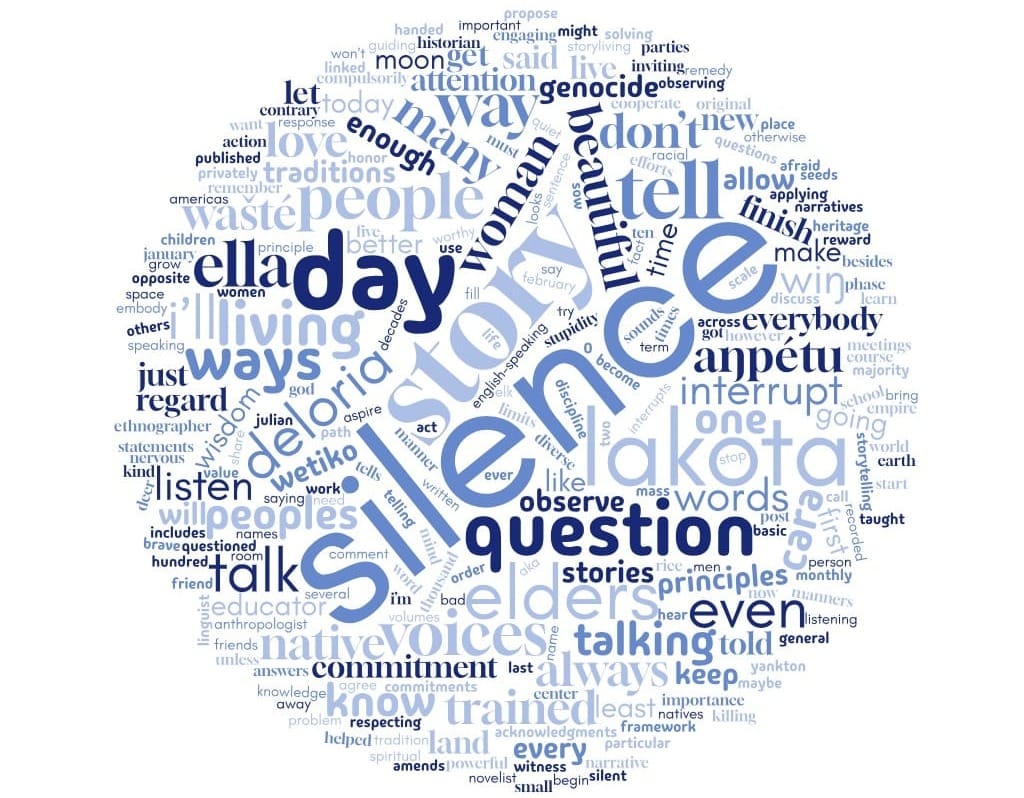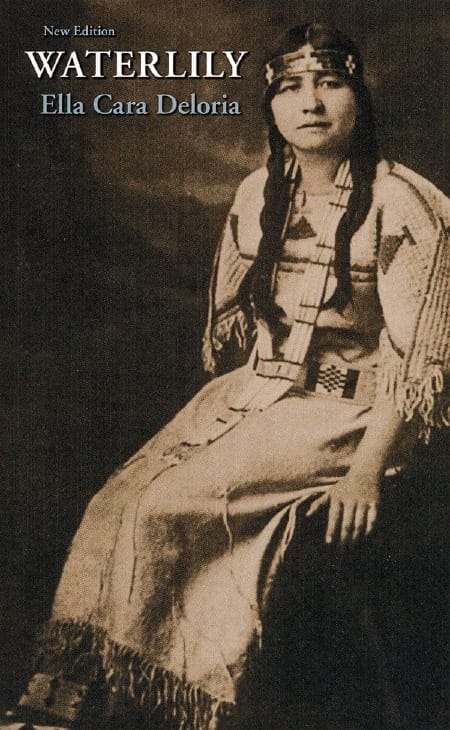why silence?
"Why silence?" was a question I got in response to my commitment to a monthly day of silence. 1. Observing a day of silence tells the story of The Way with a Thousand Names. 2. Native peoples were trained in the ways of silence. Let us mourn the genocide of native peoples with a day of silence.

"Our elders were trained in the ways of silence"
"Why silence?" This was a question I got in response to my commitment to a monthly day of silence. One friend was brave enough to post her question as a comment. Other friends questioned me about it privately.
Several principles are guiding my efforts to both love god and not cooperate with empire through commitments to new ways of living. I am engaging these principles as questions. Here is the first one.
Principle #1. Storyliving / storytelling
Which story am I living and telling with my life through this action?
Applying this question to my first commitment, we get this question: Which story (or stories) am I living and inviting others to live (or at least witness) through a day of silence linked to a phase of the moon? Respecting the limits of our time and attention, I share two answers to this question today.
- In general, the story I aspire to live and tell is The Way with a Thousand Names. This is my term for wisdom traditions that embody the same basic framework with The Path of Love at the center. Every wisdom tradition worthy of the name includes silence as a spiritual discipline. Volumes could be written about the value and importance of silence across diverse traditions, but that might be contrary to silence! Observing a day of silence, however, tells the story of The Way better than most words ever could.

- In particular, today I want to tell the story of people original to this place and their regard for silence, a story better told by Lakota educator, Beautiful Day Woman, aka Ella Cara Deloria.
We Lakota know about silence. We are not afraid of it. In fact, for us, silence is more powerful than words. Our elders were trained in the ways of silence, and they handed over this knowledge to us. Observe, listen, and then act, they would tell us. That was the manner of living.
With you, it is just the opposite. You learn by talking. You reward the children who talk the most at school. In your parties, you all try to talk at the same time. In your work, you are always having meetings in which everybody interrupts everybody and all talk five, ten, or a hundred times. And you call that ‘solving a problem.’ When you are in a room and there is silence, you get nervous. You must fill the space with sounds. So you talk compulsorily, even before you know what you are going to say.
Wetiko people love to discuss. They don’t even allow the other person to finish a sentence. They always interrupt. For us Lakota, this looks like bad manners or even stupidity. If you start talking, I’m not going to interrupt you. I will listen. Maybe I’ll stop listening if I don’t like what you are saying, but I won’t interrupt you.
When you finish speaking, I’ll make up my mind about what you said, but I will not tell you I don’t agree unless it is important. Otherwise, I’ll just keep quiet and I’ll go away. You have told me all I need to know. There is no more to be said. But this is not enough for the majority of wetiko people.
People should regard their words as seeds. They should sow them, and then allow them to grow in silence. Our elders taught us that the earth is always talking to us, but we should keep silent in order to hear her.
There are many voices besides ours.
Many voices.
This Lakota Narrative on Silence was recorded by Aŋpétu Wašté Wiŋ / Beautiful Day Woman / Ella Cara Deloria (January 31, 1889 – February 12, 1971). It was published in Deer Women and Elk Men: The Lakota Narratives of Ella Deloria by Julian Rice. Aŋpétu Wašté Wiŋ was an educator, anthropologist, ethnographer, linguist, and novelist of Yankton Lakota heritage.
Why this story now? Over the last few decades (in the English-speaking world at least), land acknowledgments have become one way to bring some attention to the genocide of native peoples on Turtle Island. Of course, most statements do not use the word genocide, nor do they propose a remedy for the racial killing of natives on a mass scale.
Let us mourn their deaths. Let us observe a day of silence every new moon to remember the genocide of native peoples in the Americas, to honor their stories, and to listen to their voices, their many voices. They are our elders on this land. Our elders were trained in the ways of silence. Let us respect them with this tradition.

Comments ()